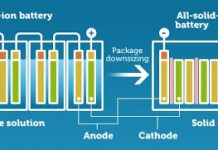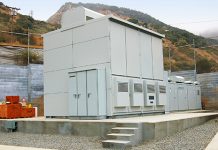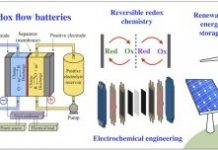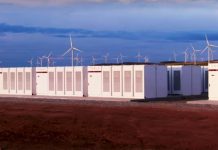by Debra Fiakas CFA
The post “Energy Storage Restart” highlighted General Electric (GE: NYSE) efforts to get back into the market for renewable energy storage. Two of the company’s most recent contract wins requires GE to install lithium-ion batteries rather than its own battery technology. This serves up an entertaining game of ‘who’s the supplier.’ Indeed, GE has partnered with a variety of companies for battery development and any of those could be candidates.
One of the reasons GE might have won two utility-scale contracts is its ability to manage large, complex assignments. GE’s performance guarantee has to be attractive to solar power producers who need a fool proof storage solution. Thus GE needs a battery supplier that can be equally reliable.
Robert Bosch GmbH is best known for its appliances, tools and after-market car parts. It gets less credit for its batteries. In 2008, Bosch entered into a joint venture with Samsung, SB LiMotive, to develop and manufacture lithium-ion batteries for all-electric and hybrid vehicles. The joint venture set up a development center and a battery cell manufacturing plant in Korea. A U.S. manufacturer of nickel-metal hydride batteries, Cobasys LLC, was acquired in 2010. SB LiMotive was ready to supply BMW and Fiat with car batteries before the joint venture was dissolved in 2012. Samsung kept the development and manufacturing facilities in Korea and Bosch walked away with the Cobasys operation and some cash. Both partners retained access to thousands of patents covering an array of battery technologies.
Since the Samsung adventure, Bosch has moved on with additional automotive battery innovations and a new solar energy storage solution. Bosch’s BPT-S5 Hybrid is a fully integrated storage solution with inverter and batteries rolled in to one and run by a software application. Bosch claims its design makes it easier to install and operate.
Since GE has its own inverters and management system, it may have no interest in Bosch’s integrated storage solution. However, Bosch claims its lithium-ion batteries are special, with exceptional storage capacity from 4.4 kilowatt-hours to 13.2 kilowatt-hours and charging power of 5 kilowatts. Bosch says its batteries can be fully charged in one hour and that discharged can be equally rapid. The company also claims its batteries are sturdy enough to handle the charge and discharge cycle at least 7,000 times.
GE and Bosch compete head to head in the sale of a variety of appliances such as cook stoves and refrigerators. A little friendly competition is not likely to be an obstacle if sourcing lithium-ion batteries from Bosch means GE can salvage its renewable energy storage effort. It may be an exercise in futility for investors to track the potential relationship. Bosch is privately held by the Bosch family charity.
Bosch is not the only pretty face at the prom. The next post highlights a few other producers of grid-ready lithium-ion batteries.
Debra Fiakas is the Managing Director of Crystal Equity Research, an alternative research resource on small capitalization companies in selected industries.
Neither the author of the Small Cap Strategist web log, Crystal Equity Research nor its affiliates have a beneficial interest in the companies mentioned herein.








